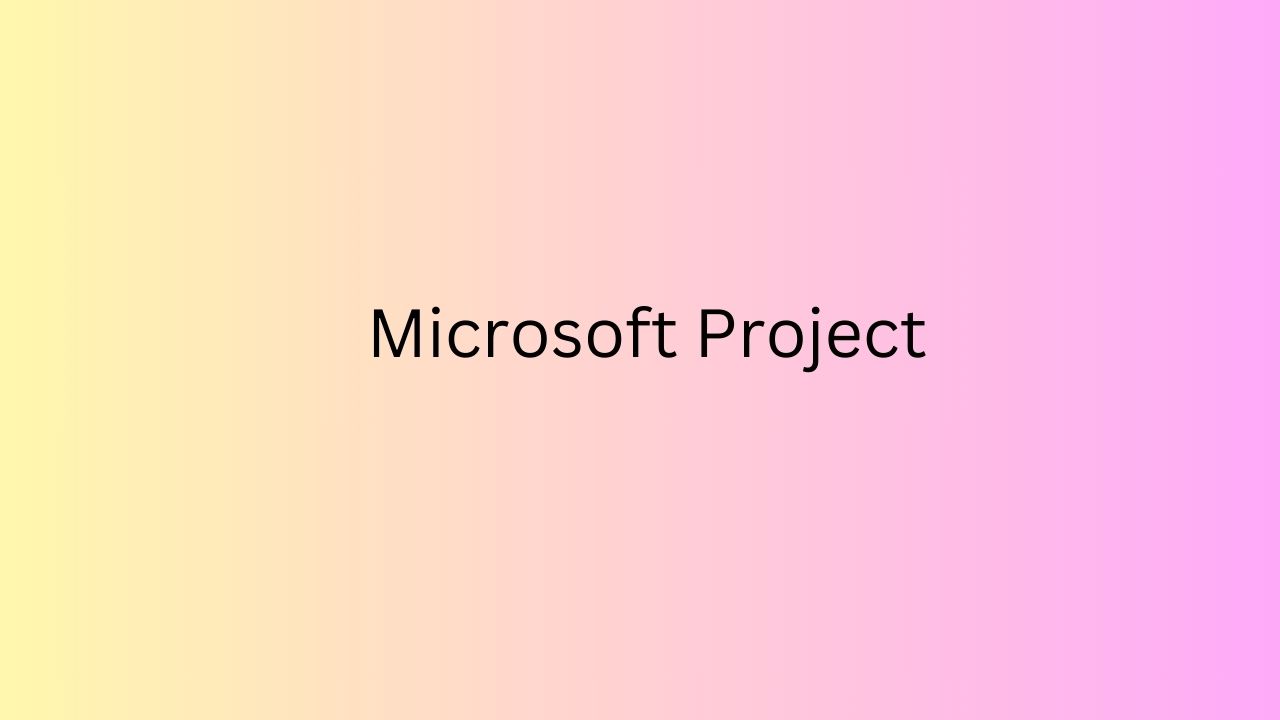
Microsoft Project#
About Course
Microsoft Project (MSP) is one of the extensive tools used by project managers to prepare project schedules, track project work, optimize resources, and report project progress on day to day basis. Generally, every 2-3 years Microsoft change this product and adds some new feature, modify look and feel, extends some existing features, etc. By 2016 four majorly used versions of this product in the market are MSP 2007, MSP 2010, MSP2013, MSP2016. Depending upon licensing and cost involved organization uses these various versions. The core of all the versions is the same, except for some advanced reporting, view, and analysis functionalities in newer versions. This course helps you understand how to use MSP for your project’s planning.
I am an extensive user of MSP since 1998. Conducted many dozens of training on MSP 2007, 2010, 2013, 2016. The general content outline is as below but based on the organizational need and experience of the audience it can be customized. The duration of the training depends upon the experience level of the audience and the organization’s needs.
Why this Course#
Project scheduling is the core of project planning. When project size is large or involves multiple teams or various types of resources or many external dependencies in that case it is extremely difficult to manage resources, schedule activities, define dependencies, and change dependencies on paper or excel sheet and manage any project successfully. In this situation, you need a reliable tool which can do all the calculation and schedule resources, optimize resources, automatically change-related dependent activities with minimum inputs from project managers.
Course Outline#
Day 1:#
- PART 1: Project & Project Management: Including setting project with a project calendar.
- PART 2: Introduction to Microsoft Project (MSP) Interfaces.
- PART 3: Activity Attributes & Dependencies: Including WBS, WBS Dictionary, task identification, task dependencies, constraints, deadlines, etc.
- PART 4: Skills Estimation (Basic): Including resource types, skill types, and assignment, etc.
Day 2:#
- PART 5: Cost Estimates (Advance): Including EVM Concepts, resource rate tables, resource calendar, contingency buffer, etc
- PART 6: Duration Estimation & Schedule Development: Including different duration estimates techniques, CPM, Resource Levelling, Lead, Lag, Baseline cost/schedule, what-if scenario analysis, etc
- PART 7: Tables & View (Basic): Introduction to tables, views, team planner, etc.
- PART 8: Tracking Project Activities & Resources: Including task progress update, actual hours/material/money spending update, a resource update, etc
- PART 9: Monitoring & Controlling: Including comparing variance against their goal, raising change request, etc.
- PART 10: Communication (Advance): Determine communication need (metrics), customize fields for resource and task, view, tables, visual reports, tabular reports, filters, snapshot, etc.
Days 3:#
- PART 11: MSP For Experts (Special Features): Including task split, task drivers, recursive task, customizing critical path formatting, etc.
- PART 12: MSP for Experts (Customization): Including customization of timescale, view, filter, tables, reports, etc.
- PART 13: MSP for Experts(Powerful Features): Including subprojects, resource pool, critical path analysis, adjusting assignments, CCM, Resource availability, resource budgeting, Macros.
- PART 14: Best Practices for MSP Users: Explaining 25+ best practices for making and maintaining a project schedule and baseline.
- PART 15: Agile Project Management using MSP.
Duration#
3 Days
Course Takeaway#
- 24 PDU Certificate, which can be used by PMP, PgMP credential holders to renew their certificate.
- Understanding different elements and concepts of scheduling
- Understanding how to prepare project schedule independently
- Understanding how to track project on day to day basis
- Understanding how to baseline project and prepare reports using baseline and actual progress data
- Understanding how to analyze schedule from a different perspective
- Understanding how to level resources
- Understanding how to work with a master plan
- Understanding how to work with pooled resources
- Understanding how to manage material, cost, and work resources of any project
- 20+ Scheduling best practices
Delivery Method#
- Concept Explanation
- Demo on trainer’s machine
- Student practice
- Independent and Group Exercises
- Q&A Sessions
- Quizzes


Comments: